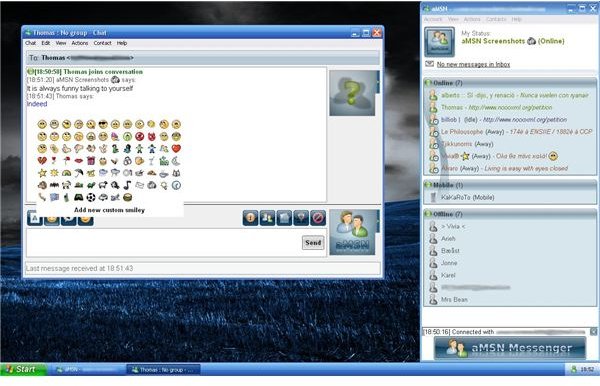
- UBUNTU SCREENCAST TO TV HOW TO
- UBUNTU SCREENCAST TO TV INSTALL
- UBUNTU SCREENCAST TO TV PORTABLE
- UBUNTU SCREENCAST TO TV PC
- UBUNTU SCREENCAST TO TV BLUETOOTH
UBUNTU SCREENCAST TO TV INSTALL
Install the ‘Cast to TV’ GNOME Shell Extension The Cast to TV GNOME extension is available to install from the GNOME Extensions website: Next, you’ll need to install the Cast to TV extension itself.

The extension’s Github page details the dependencies required to use the tool. All of these are necessary (the extension won’t work without them) but, thankfully, all available to install via the standard Ubuntu repos: sudo apt install nodejs npm ffmpeg See a music visualiser on the TV when playing musicĪlthough Cast to TV is a GNOME extension it’s not quite as simple to set-up and use as other GNOME extensions.Set position of nn-screen player controls.Stream photos from Ubuntu to Chromecast.It doesn’t (alas) have the option of using a separate applet.

When installed and enabled you access its features via the main GNOME Shell Status Menu. The ‘Cast to TV’ GNOME Shell extension is a tray-based tool.
UBUNTU SCREENCAST TO TV HOW TO
We’ve previously shown you how to cast video from Ubuntu to a Chromecast using the open-source MKChromecast tool, and don’t forget that the popular VLC media player has Chromecast support built-in too.īut now there’s a new way for Linux users to cast content to a nearby TV over the local network using Google’s cheap n’ cheerful dongle using a GNOME Shell extension. Not at all wireless, but it's the simplest, cheapest and most direct solution for me!Īfter connecting my laptop to the TV, it's just a case of opening the KDE settings dialog and enabling the TV in the monitor settings page.Īlso in the "audio hardware" settings tab of the audio settings page - change "full stereo duplex" to "HDMI output" to route all sound from your laptop to your TV.It just got easier for Ubuntu users to cast video, music and pictures to a Chromecast equipped TV, direct from the desktop. Personally, whenever I want to connect my Linux laptop to the TV in the living room, I just use a 2 metre long HDMI cable. So there are advantages and disadvantages to each option.
UBUNTU SCREENCAST TO TV PC
the PC in question is always going to be situated in exactly the same place.
UBUNTU SCREENCAST TO TV PORTABLE
It wouldn't be a particularly portable setup, but wireless HDMI extenders might be worth the expense if the setup will be a permanent thing - e.g. (Typically HDMI cables are no longer than 2 or 3 metres - So with a cable your PC would have to be pretty close to the TV.)īy using a wireless HDMI extender, you could have your PC virtually anywhere in the house. I think the extenders each have a power supply too - so there would also be a power cable required for each extender.Īlthough not a completely wireless solution - it at least means that you could use your TV as a second monitor on your Linux PC and you can have your PC further away than you could with a direct, cabled HDMI connection. These things are quite expensive and aren't completely wireless, because they require two short HDMI cables (one to connect your TV to one of the extenders and the other to connect your laptop to the other extender). So the downside to this approach is that your stream could be broadcast to anybody listening on the internet! :/Īnother option (albeit a much more expensive option) might be to consider using something like wireless HDMI Extenders. Offhand, I'm not sure whether OBS Studio allows you to create a localised stream on your local wifi network or not. OBS should be available in the *buntu repos. There are also screencasting programs like OBS Studio that will allow you to create a video stream of your desktop - but I think the streaming functionality requires a connection to some kind of web-based streaming service (e.g.

The only tricky bit might be getting it working - with any luck the following link has that covered: I've never tried using chromecast, but that would offer the most portable and wireless option at relatively low cost. You could stream your linux desktop to your TV using something like a chromecast stick. I am still using version 12 and have never upgraded to v13, so I don't know about it specifically.

If you decide to test it, you need to use the same version on each device that you will connect. Remote desktop is a great troubleshooting tool for helping people who live too far away, and there are other ways of doing remote desktop besides TeamViewer. Personally, I don't trust phones too much, and anything with remote connection capability to your home computer should be thoughtfully considered for the risk it presents. so that you could control your Kubuntu Linux from another computer (or even from your phone). What you may be asking about, instead, is "remote desktop." This is a very similar thing (in my mind). Maybe there are other applications too, but I just don't do much of this sort of thing.
UBUNTU SCREENCAST TO TV BLUETOOTH
but I think of it as a way to bluetooth connect between my phone and my smart TV.


 0 kommentar(er)
0 kommentar(er)
